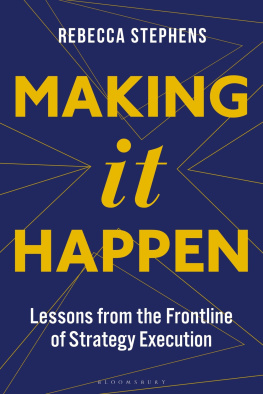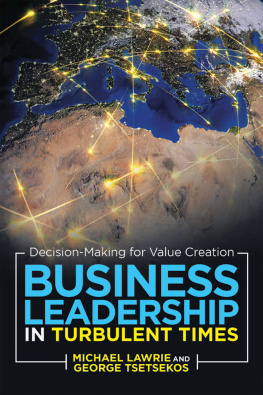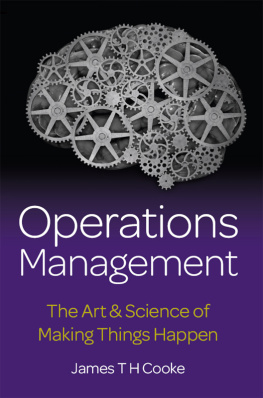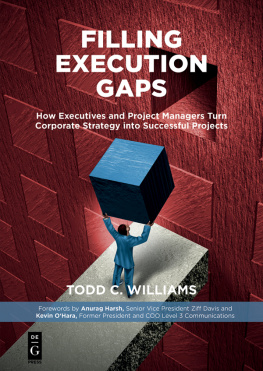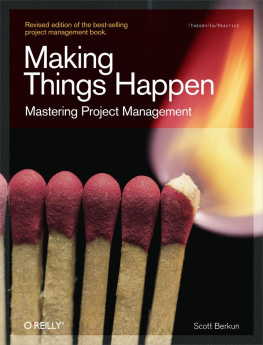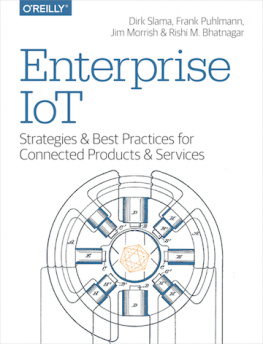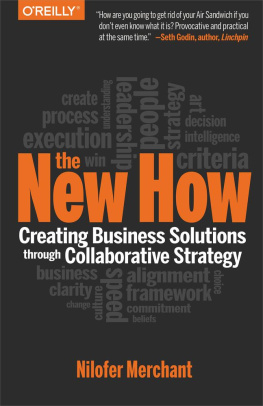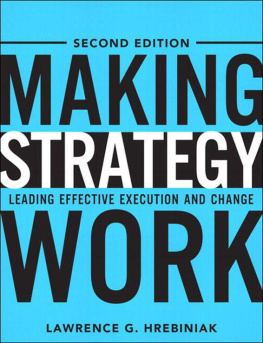Making it Happen tells some inspirational stories from generals to GPs, and mountaineers to multinational CEOs. But from these unique stories it teaches us some profound lessons on how to execute strategy with purpose and agility.
Sir Graham Wrigley, co-founder partner of Permira and Chairman of CDC Group Plc
This book reminds us whats possible, its compulsive reading if you want to turn dreams to reality.
Tracy Edwards MBE
I have always had passion for exploration, climbing new routes and going to places where no one has ever been before. Its a spirit of exploration, innovation and discovery, thats fundamental for growth in the wider world as it is in the mountains, and in the pages of this book we read fine examples of people from all walks of life who have taken initiative and changed the world for the better. Its inspirational and shows us all how with the right mindset we too can take on the mantle and make a difference.
Sir Chris Bonington
I thoroughly enjoyed these heroic case studies of successful strategy from a woman who knows first-hand how hard it is to reach the summit. Rebecca Stephens insightful analysis of a refreshing array of organizations from the arts, government and healthcare to outer space inspires us with well-told tales of surprisingly down-to-earth yet visionary leaders who took that crucial step toward Making it Happen.
Dr Dina Dommett, Ashridge Dean, Hult International Business School

Contents
The following people gave generously of their time, and imparted their wisdom so that I might capture it, at least in part, in the pages of this book. I was transfixed as each told me their story in their studio, clinic, classroom, office or comfort of their own home or latterly, over Zoom. I thank each one of them, too, for kindly answering questions and providing clarification to ensure accuracy. They are: Emma Bridgewater, John Clarke, Dr Peter Robbins, Simon Pulsford, Tim Wright, Jens Festervoll, Stein Petter Aannerud, Dr James Morrow, Dr Laurence Kemp, General Sir Michael Rose, Dame Helena Morrissey, Tamara Rojo, Sir David Wright, William Allen, Nimsdai Purja, Sir Tim Brighouse, Sir Anthony Seldon, Neil and Jane Lunnon, Ian Morris and Gideon Heugh.
Many others have added depth and colour to the stories, or generously provided direction and ideas, checked facts and data, and generally supported the book from its inception through to its publication. They include Tamara Box, Lieutenant-General Sir Graeme Lamb, Dr Peter Robbins, Zubair Ahmed, Sabina Horga, Charles Antelme, Dan Phelan, Oliver Szasz, Charlotte Southwell and Betony Baylis. I thank NASA for kindly agreeing to William Allen telling his part of the story of the Artemis programme. Thanks also to Clare Grist Taylor who knocked the proposal into shape, Matt James of Bloomsbury for taking it on, and Allie Collins and Harriet Power for being such brilliant, sympathetic editors. Thanks also to Jasmine Parker for the cover design, Rachel Murphy in production, Amy Greaves in publicity and Rosie Parnham in marketing an altogether professional Bloomsbury team. And, of course, Paul Heugh, who is not only a contributor of this book, but whose idea it was, and who has been the support every writer needs from start to finish.
by Tony Renton, Chairman of a number of technology start-up companies
Life throws up challenges and people rise to meet them, and they find solutions. They have done so through the millennia and will continue to do so in the future; it is the very nature of human beings. Naturally, every generation thinks it has a harder time of it than the last, but this one might have more cause to think so than most. The sheer weight of numbers of us as human beings, a planet visibly creaking under the strain, an endless turnover of ideological and religious conflicts, threats unseen in the shape of viruses and cyber warfare, and a global debt approaching $300 trillion. Now, more than ever, each of us needs to step forward and play our part to address the challenges we face.
From my own experience in business, I know that to find a way and implement a strategy to make things happen isnt always easy. It requires clarity, energy, and sticking power. So, it is wonderfully inspiring to read in the pages of this book about remarkable men and women who have repeatedly found ways to influence and shape their worlds for the better. They are all realists. They look at the world as it is good and bad and refuse to allow themselves to be daunted by circumstance or the magnitude of the challenge. Contributors to this book could see that the NHS was in a state of chronic ill-health; that people were starving on the streets of Sarajevo; that London kids werent getting the education they deserved, and for them, this was a call to action. It wasnt somebody elses problem to sort out, it was theirs. Through a strong sense of purpose and commitment to the cause, great leadership and communication skills, they determinedly executed strategies to turn the situations around.
In my own field, oil and gas, two young men working for the Norwegian energy giant Equinor looked at their own industry and acknowledged that it wasnt sustainable in the long term and took the first baby steps to transformation through digitalization, improving efficiencies and paving the way for a shift towards renewables in the future. They have helped not only their own company but the sector as a whole.
Without exception, the contributors to this book were optimistic that solutions could be found, regardless of the difficulty of the task.
For many years, I was a commercial director at BP with responsibilities across the Middle East. BP is a complex global business and like Equinor and other energy companies, it is challenged by the need to plan beyond the horizon. The dilemma now is can oil companies transform themselves into energy companies to meet the climate challenge? Do they have the requisite skills? Much inward thinking is going on how will renewables compete for capital, will the funds that own shares be confident in their future dividends, and so on. Strategies for this transformation are emerging its as much a revolution as evolution. The companies have well-developed capabilities to do this, but strategy on its own isnt enough it needs to be combined with people who take decisive action and are not afraid to take calculated risks. Its rare in my experience to find someone who is good at both, but having both skills in ones team is, to me, a pre-requisite for success. I reflect on the leadership style of those in this book all highly effective, but each different. There is so much within these pages for the reader to learn from their wealth of experiences and different styles of leadership.
When I look at my own style I believe, or would like to believe, it is open, collegiate, occasionally firm, listening, trusting, team-based and optimistic. What gives me the most pleasure is recognizing and utilizing exceptional talent. Whilst Im a big fan of team-based delivery I recognize that there are along the way but for me moments where someone really stands out either with exceptional delivery or with a light-bulb moment idea; I need to give space to allow and encourage this to happen.
On the wheel of management styles, I come out more as a strategic architect and weaker on the concluder/producer aspects of delivery, so over the years I have ensured I bridge my own weaknesses by bringing in others with diverse style and skills. While acknowledging that there are continuing advancements in technology and an array of methods and processes to call upon to facilitate implementation, the fact remains that the differentiator between tick-box implementation and exemplary implementation is how we work together with people. Working well within our own teams and with those outside is not only crucial it makes work fun and rewarding. During the pandemic it is surely the ability to sit down with others and map the way forward that we all missed.

